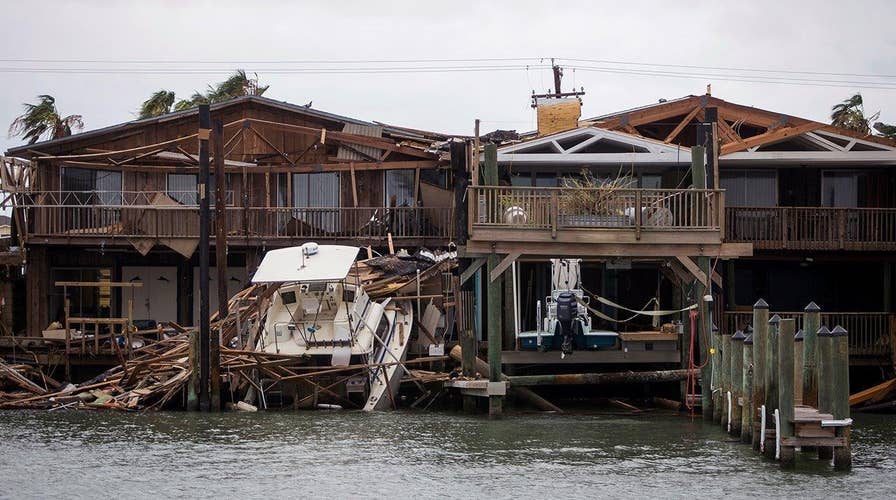Many Harvey victims do not have flood insurance
And the National Flood Insurance Program is $25 billion in debt after Hurricane Katrina and superstorm Sandy; chief congressional correspondent Mike Emanuel reports from Washington
Hurricane Harvey’s devastation has left Texas Gulf Coast residents dealing with a historic cleanup – and increased pressure on Congress to extend the federal program that underwrites flood insurance policies.
The National Flood Insurance Program’s authorization is due to expire Sept. 30– which is also the deadline for Congress to pass a new government funding extension.
Unless lawmakers extend the program, it won’t be able to offer new policies. Existing policies also could be in some jeopardy following Harvey, as the program is likely to hit its $30 billion borrowing limit.
The situation has renewed calls to not just reauthorize the program but fix it.
“We are $25 billion in debt, it runs on a deficit, so we want to reform”, Wisconsin Republican Rep. Sean Duffy told Fox News. “We should have a reserve fund in this program so that when you have a disaster like Harvey or Katrina or Sandy, we have resources there to pay it.”
All but a tiny portion of U.S. flood policies are underwritten by the government after private insurers left the flood insurance market due to the risk of facing such major and unpredictable losses.
But even if Congress acts, residents who don’t have flood insurance will have to search for assistance elsewhere.
"Just called my adjuster and found out that I don't have flood insurance. Just wasn't really given the right information. Just wasn't educated enough ... this is my first home,” Samuel Goodwin of Dickinson, Texas, told Fox News. “I will have it now. I wish I would have had it from the jump, but as you can tell my whole house, my first floor is destroyed."
Others say they didn’t carry flood insurance because they’ve never had flooding problems before.
“It's pretty heartbreaking. Just come home, see all this. Have to go through it and not have insurance,” Dickinson resident Bauwana Donohue said. “I've been here 44 years, we've never experienced a flood like this … in 44 years here."
An Associated Press investigation found there are 25,000 fewer flood-insured properties in Harris County, Texas, than there were just five years ago – a sharp 9 percent drop.
FEMA officials are advising those residents without policies to reach out to the Small Business Administration. While FEMA may provide some short-term assistance, SBA is known for offering disaster loans for long-term recovery help.
The SBA loans offer interest rates at 1.75 percent for homeowners and renters, which is much lower than most banks or credit cards, and give homeowners the ability to pay them back over 30 years. That loan, however, would be on top of a mortgage, which may be difficult for many residents to juggle.
Those with flood insurance still can expect a long road ahead.
Victims of Superstorm Sandy in New York and New Jersey have described rebuilding as a frustrating process. “It is a nightmare,” New Jersey Gov. Chris Christie told MSNBC. “And it is one of the worst-run programs in America, the National Flood Insurance Program.”
Re-upping the program is one of several must-do tasks for Congress when lawmakers return next week for a busy September – facing demands to also raise the debt ceiling, pass a new government spending package and pass a new defense authorization bill.













































